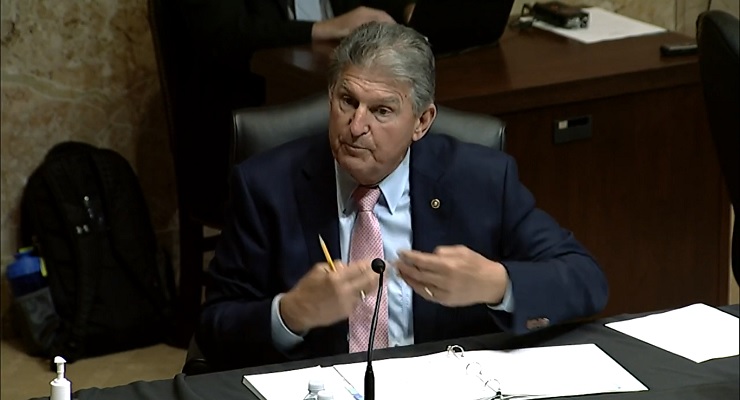
Senator Joe Manchin (D-W. Va.) finds himself in a peculiar position. An article by Taylor Branch in Bloomberg describes his vote in the battle to pass the For the People Act as a swing vote, one that will decide whether or not the significant voting rights bill will be passed. The article also argues that regardless of how Manchin will vote divisions will continue to exist. Here is an excerpt:
Senator Joe Manchin carries a fateful burden. By quirk of gridlock, he is literally the swing vote between two warring visions for the vote itself. If he gives his decisive 50th vote in the Senate to pass S. 1 — the For the People Act — millions are sure to revolt against perceived tyranny from Democrats expanding the franchise with national standards. If he votes no, millions are sure to revolt against perceived tyranny from Republicans restricting the franchise with new state laws. Poisonous division will intensify either way, at least for a time.
Senator Manchin correctly believes that extreme partisanship is a danger signal for American democracy. By the Founders’ design, our “experiment” in republican self-government rests on public trust in votes, which President Lyndon Johnson once called “the most powerful instrument ever devised by man for breaking down injustice.” Yet confidence in republican institutions has frayed for decades by every objective measure, and vote-based American democracy is disparaged or helpless in many countries ruled by autocrats, armies and coups. Wherever democracy weakens, appeals to violence break loose.
The pending crisis is frightful but hardly unprecedented. In fact, hyperpartisanship has been a constant threat when Americans contend over who can vote. Conflict is nearly inevitable because our Constitution does not define the electorate. Nor does it give anyone an explicit right to vote. Voting rights now cherished routinely were once battlegrounds, and U.S. history offers warnings along with lessons for repair.
Read the full story here.
Leave a Reply